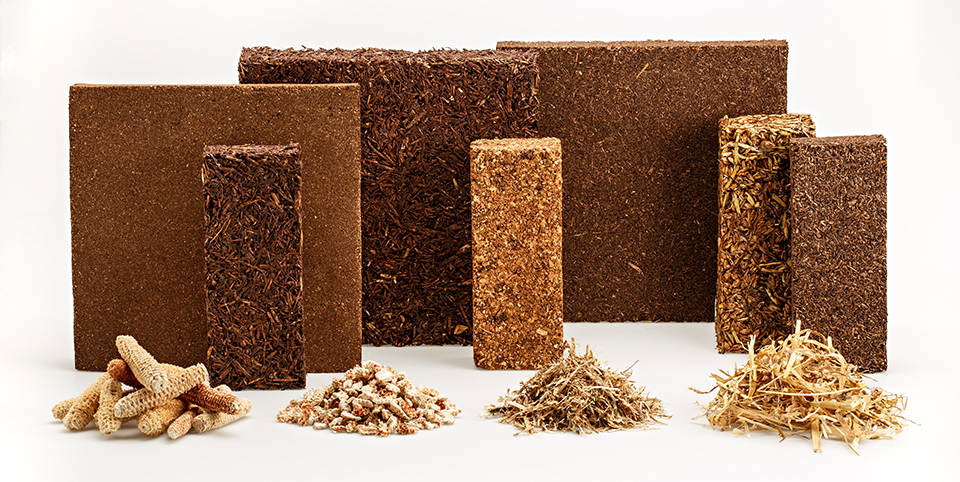Sustainable insulation for buildings using renewable raw materials


Building insulation made from renewable raw materials has been state of the art for many years, but still accounts for only a small share of the insulation market because it has disadvantages compared to mineral products and foamed plastics, e.g., in terms of fire behavior, or because it is not available in the form of self-supporting panels.
In the joint research project “OrganoPor-Fassade” funded by the German Federal Ministry for Economic Affairs and Climate Action (BMWK), experts from Fraunhofer LBF have further developed new bio-based, halogen-free, flame-retardant, self-supporting insulation boards that can be integrated into a composite thermal insulation system.
Effective insulation materials for buildings are an essential component of modern construction for saving energy. Mineral or petroleum-based insulation materials are mainly used, with a small proportion coming from renewable raw materials. Bio-based insulation materials require little energy to manufacture, conserve fossil resources, and ensure a pleasant indoor climate. However, there may also be certain limitations, e.g., in terms of price, handling, mechanical stability, or fire properties, which is why they are only partially competitive with mineral or petroleum-based variants.
In a previous project funded by the Federal Ministry of Food and Agriculture (BMEL), Fraunhofer LBF has already demonstrated the basic feasibility of manufacturing insulation boards from agricultural residues that exhibit good mechanical properties, low fire behavior, and acceptable thermal conductivity and densities. To demonstrate practical suitability, further development steps were necessary to validate the materials in real applications and to scale up the manufacturing process.
In the joint project “OrganoPor-Fassade” funded by the German Federal Ministry for Economic Affairs and Climate Action (BMWK), the raw materials, formulations, and processes were adapted and scaled up in collaboration with the project partners UPM Biochemicals GmbH, JOMA Dämmstoffwerke GmbH, and Baumit GmbH.
When selecting the agricultural residues, their mass availability was taken into account in order to be able to substitute potentially large parts of the insulation materials used today without endangering the humus reproduction of the soil. Furthermore, the bulk density of the raw materials was reduced by adapting the processing methods so that panels with acceptable densities could be produced. In small burner tests, the insulation boards passed the test according to EN ISO 11952-2 (Fig. 1). They can therefore be classified as normally flammable and non-combustible (E). An SBI test to demonstrate flame retardancy is still in the planning stage.
Furthermore, the manufacturing process was scaled up so that JOMA Dämmstofferke GmbH was able to produce panels measuring 100 x 50 x 8 cm, which were integrated into an ETICS by Baumit GmbH and subjected to weathering tests, during which they showed no negative characteristics.
The OrgaoPor panels have clear advantages over other insulation materials made from renewable raw materials due to the use of unused waste materials and their fire behavior (Fig. 2). Due to the mass availability of the raw materials and the scalability of the manufacturing process, there is potential to replace insulation materials made from fossil and mineral raw materials.
Homeowners and builders can make a significant contribution to reducing CO2 emissions, while manufacturers of insulation materials and suppliers of thermal insulation composite systems can expand their product range with sustainable products.


The development of the insulation boards was funded by the German Federal Ministry for Economic Affairs and Climate Protection on the basis of a resolution passed by the German federal parliament (Bundestag).
Program: Applied non-nuclear research funding in the 7th Energy Research Program “Innovations for the Energy Transition”
FKZ: 03EN1039A
Consortium partners: